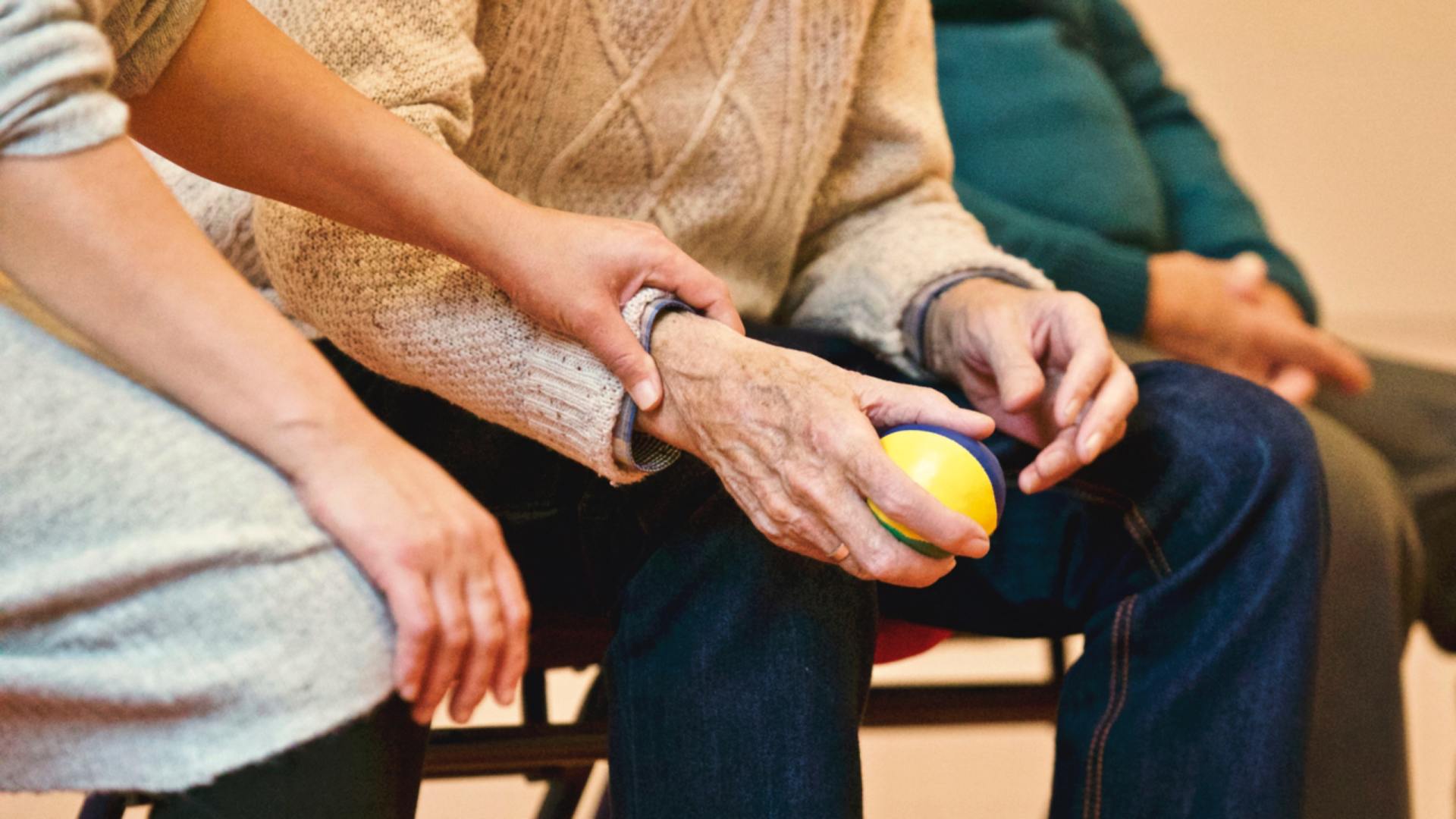Staying Independent and Safe
How Optimal Home Care Can Help

Home health care is an excellent option for older adults who are recovering from injuries or managing acute or chronic health conditions, as it allows them to remain in their own homes while receiving care. The benefits of home health care extend beyond just convenience and comfort, making it an important choice for patients and families alike. Here are some of the top advantages of home health care:
Greater Independence
Home health care plays a crucial role in promoting greater independence for older adults. With the support of a skilled home health care team, seniors can continue to perform their daily activities such as bathing, dressing, and preparing meals. This allows them to maintain their sense of autonomy and independence while living in their own homes. The team can also provide assistance with mobility and help create a safe environment to reduce the risk of falls, giving older adults the confidence to move around their home with ease. By providing these services, home health care enables older adults to maintain their independence and remain in their homes for as long as possible.
Safety, Comfort, and Convenience
Research has shown that elderly adults tend to recover faster and experience fewer complications when receiving care at home rather than in a hospital. Home health care offers a range of benefits for elderly patients, including safety, comfort, and convenience. By receiving care in the comfort of their own homes, seniors can remain in familiar surroundings and maintain a sense of normalcy in their lives. Home health care professionals can also help patients create a safe environment that reduces the risk of falls, which is a common concern for many elderly individuals. By promoting safety, comfort, and convenience, home health care enables elderly patients to receive the care they need while staying in the place they call home.
Relief for Family Caregivers
Family caregivers often bear a heavy burden of responsibility, so home health care can provide much-needed relief. Home health aides can assist with tasks such as bathing and dressing alleviating some of the burden on family caregivers. This can help prevent caregiver burnout and reduce stress levels, allowing family members to focus on spending quality time with their loved one. The home health care team can also educate family members on how to provide follow-up care, connect them with helpful resources, and provide peace of mind knowing that their loved one is receiving high-quality care. By offering this support and assistance, home health care can help ease the responsibilities of family caregivers and improve the overall well-being of both the caregiver and the elderly patient.
Prevents Avoidable Trips to the Hospital
Home health care plays a crucial role in helping the elderly manage their health conditions and avoid avoidable trips to the hospital. With regular monitoring and education, patients can stay on top of their health and recognize warning signs early on. Additionally, home health care providers offer guidance and support when patients are experiencing troublesome symptoms. By providing this kind of care and attention, home health care helps elderly patients avoid unnecessary hospital visits and emergency room trips, which can be both costly and disruptive to their lives. By managing their health conditions in the comfort of their own homes, patients can maintain their independence and quality of life while receiving the care they need.
Saves Money
Home health care can be a cost-effective option for elderly patients and their families. By avoiding unnecessary trips to the hospital and preventing the need for more intensive types of care, home health care can help families save money in the long run. Additionally, home health care is covered by Medicare and other insurance providers for eligible patients, which can further reduce out-of-pocket expenses. By providing comprehensive clinical care, from skilled nursing and therapy to wound care, home health care offers a wide range of services that can be tailored to meet the unique needs of each patient. By providing high-quality, personalized care in the comfort of the patient's own home, home health care can help families save money while ensuring that their loved ones receive the care they need to stay healthy and independent.
Exceptional Care
Home health care is a form of healthcare grounded in evidence-based practices and standards of care to ensure that patients receive the right care at the right time in their home. Studies have shown that elderly patients recover faster and with fewer complications at home than in a hospital setting, making home health care a high-quality alternative. Home health care professionals, including nurses, physical therapists, occupational therapists, speech therapists, social workers, and aides, work together as a team to provide comprehensive clinical care that is tailored to the specific needs of each patient. These professionals are carefully screened, trained, and supervised to provide safe and effective care. By adhering to established standards of care and employing the latest technologies and best practices, home health care providers offer patients high-quality care that is on par with that provided in traditional healthcare settings.
Personalized Care
One of the primary benefits of home health care is that it delivers personalized care. Each patient receives one-on-one attention from a team of healthcare professionals, who develop a care plan tailored to the patient's unique needs. This personalized approach to care means that patients receive treatment that is specific to their condition, preferences, and goals. By working closely with their healthcare team, patients have a say in their care and can be actively involved in their recovery process. This collaborative approach to care builds trust among the patient, caregiver, and healthcare team, leading to better health outcomes and higher patient satisfaction.
Team of Professionals
Home health care is delivered by a team of highly trained professionals that includes nurses, physical therapists, occupational therapists, speech therapists, social workers, and certified nursing assistants (CNA's). Each team member brings unique skills and expertise to the patient's care plan. For example, physical therapists help patients improve their strength, mobility, and balance, while occupational therapists focus on helping patients perform daily activities safely and independently. Speech therapists work to improve speech and language function, while nurses provide skilled medical care and coordinate with other members of the healthcare team. CNA's assist with activities of daily living, such as bathing, grooming, and dressing. By working together, this multidisciplinary team provides comprehensive care that addresses all aspects of the patient's health and well-being. patients can see these professionals without leaving their homes.
Combats Isolation and Loneliness
Home health care can help combat loneliness and encourage socialization, which is especially important for older adults who may be at risk of social isolation. By receiving care in the comfort of their own home, patients are able to maintain their daily routines and continue engaging in social activities. The home health care team can also provide companionship and engage patients in conversation, which can help reduce feelings of loneliness and isolation. Family members and friends are also more likely to visit an elderly loved one in their home, as there are no set visiting hours or restrictions. This increased social interaction can have a positive impact on the patient's overall well-being and quality of life.
In conclusion, home health care offers a wide range of benefits to older adults and their families. By receiving care in the comfort of their own home, patients can maintain their independence and continue to live their lives on their own terms. Home health care also provides a safe, comfortable, and convenient environment.
Call us today to learn more about how Optimal Home Care can help. 303-488-9999










